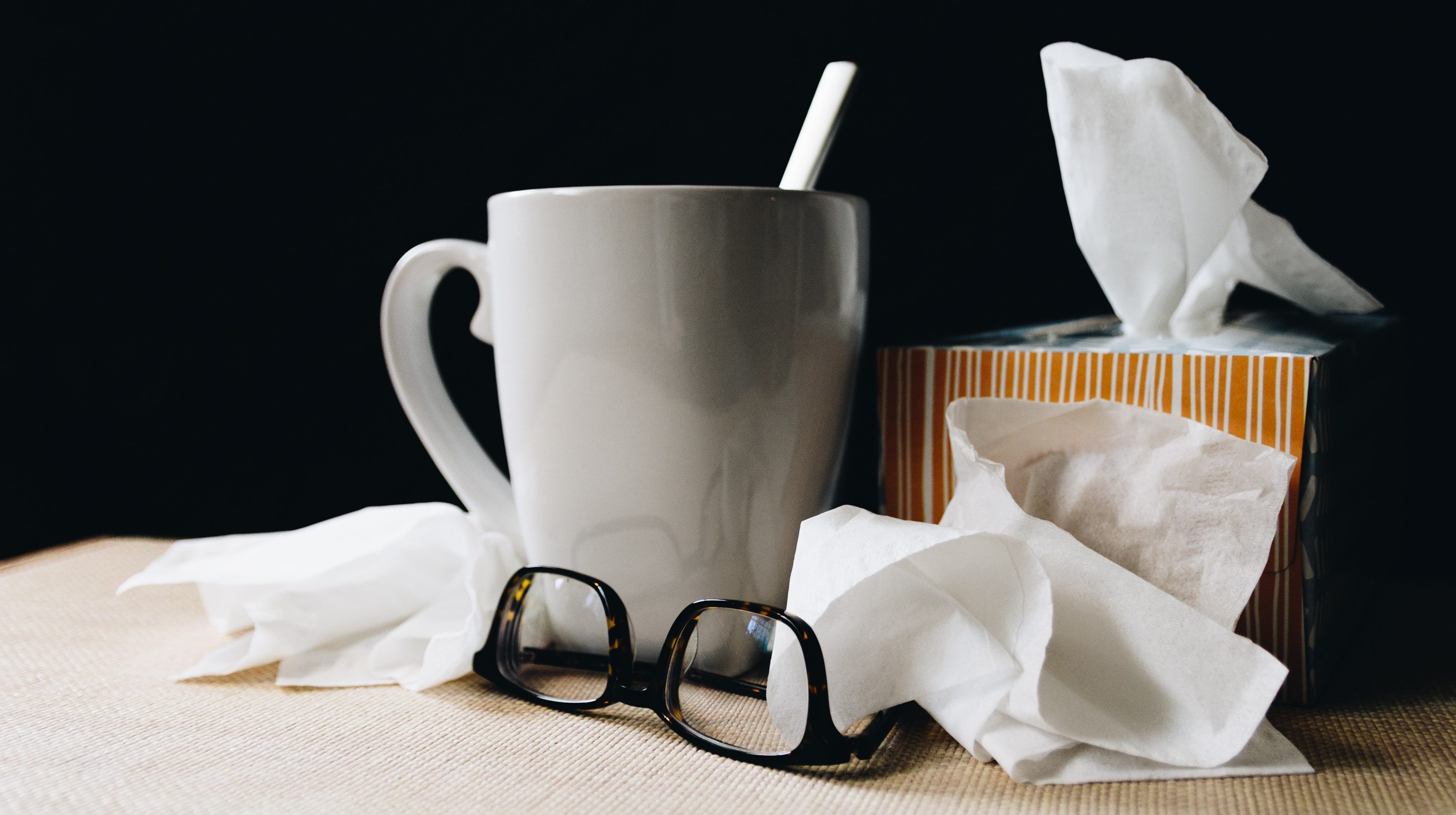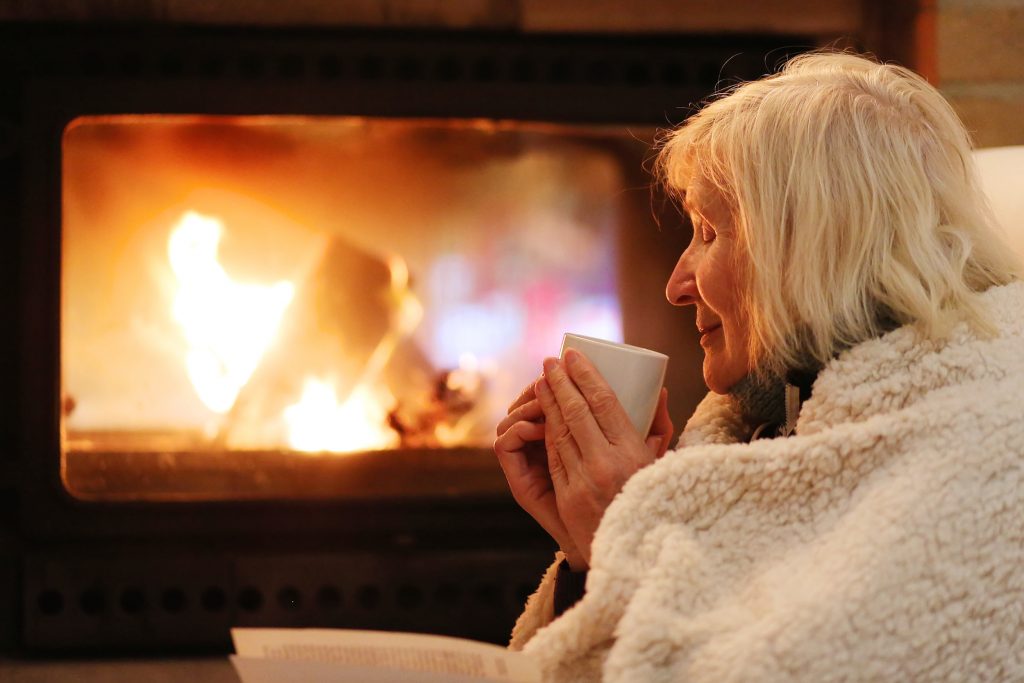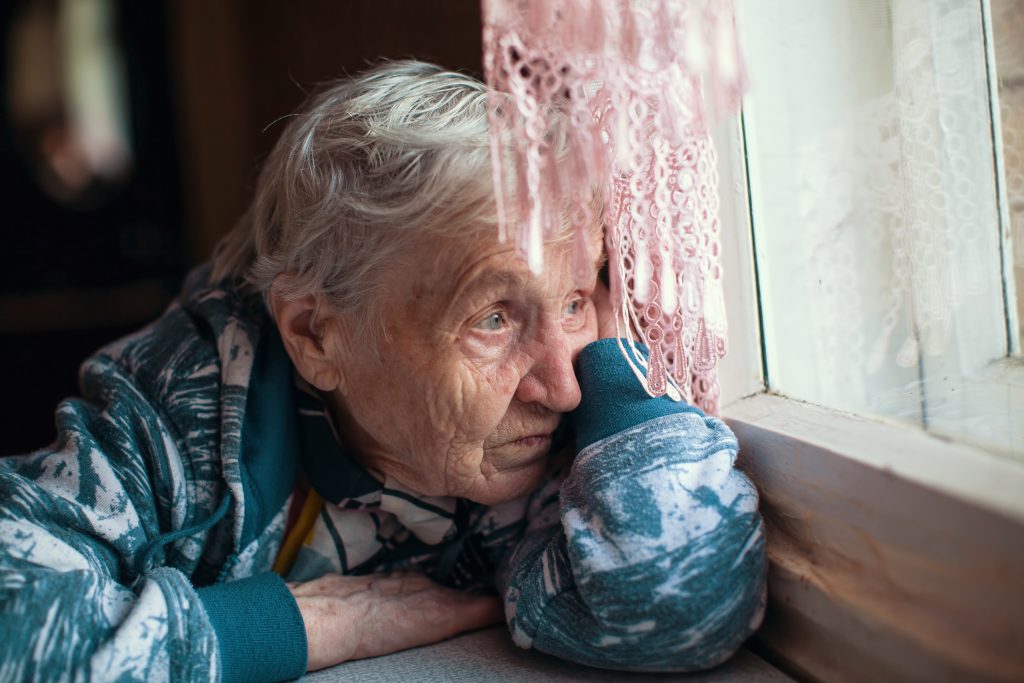How To Stay Well This Winter

Do you always seem to get sick during the winter months? Our guide on how to stay well this winter, will help you to fight off the flu and combat the common cold!
Long nights, chilly days and feeling under the weather, is what many of us in the UK associate with this time of year. For some, a virus in the winter is just a frustrating and miserable annoyance. For others, it can be so serious that it leads to death. Flu and the complications associated with it cause 8,000 deaths on average a year in England according to NHS England. Many of these deaths are in adults over the age of 65.
Why you’re more likely to be unwell in the winter
Cold weather itself doesn’t cause illness, but it can make being unwell more likely. Studies indicate that certain viruses are able to reproduce and spread more easily in lower temperatures, as well as in cold, dry air. Along with an increase in viruses and how quickly they spread, the immune system can be compromised during the winter. This may be due to a decrease in vitamin D, spending less time exercising, an unhealthier diet and blood vessels narrowing.
Essentially, this means that we are more exposed to bugs, whilst being less able to fight them off. Not an ideal combination.
Research has also shown that there is a higher rate of heart attacks during the winter. This is believed to be due to blood vessels narrowing in the cold weather, which causes a rise in blood pressure. This increase puts extra strain on the heart, as it has to work harder and can lead to heart attacks in some people.
Who’s at risk?
Those that are most at risk of becoming unwell in the winter, or who may have complications from being unwell include:
- Pregnant women
- Over 65’s
- Those with long term health conditions – such as heart disease, asthma, or diabetes
It is not all bad news, however. There are things that you can do to try and stay well.
Flu vaccines
Everyone in the at risk group is eligible for a free flu vaccine, which you can receive from your GP surgery or local pharmacy. NHS workers and carers (including those who are the main carer for an elderly or disabled person & in receipt of carer’s allowance) are also eligible.
Even if you’re not eligible for the free vaccine, you can get vaccinated in your local pharmacy. Prices as of November 2019, range between £7 – £12.99 (depending on the pharmacy).
Hand washing
Washing your hands regularly can help you to avoid picking up any viruses from public or shared surfaces (door handles, light switches, office telephones etc.). It also helps to ensure that you don’t share your germs with others! If someone in your household is unwell, try to wash glasses and cutlery in hot water, and make sure that towels are kept clean. Dispose of any used tissues and wash your hands afterwards, to decrease the risk of spreading infection.

Eat well
A healthy diet helps to keep your immune system strong, which is essential during the winter months. Try to eat a diet with plenty of fruit and vegetables, low-fat proteins and complex carbohydrates, to ensure you aren’t deficient in any vitamins or minerals. Homemade soups and hearty stews are classic winter warmers, that will help towards your 5 a day.
Stay hydrated
Drinking plenty of fluids will help to keep your immune system running as it should. Our blood contains a lot of water and carries oxygen to all of our cells – keeping them working properly. Water is also in lymph, a fluid that is part of our immune system which contains the white blood cells that help us to fight off infection. We recommend drinking plenty of hot drinks such as honey & lemon, or green tea. Not only will they keep you hydrated but they will also help to warm you up on chilly winter days.
Get plenty of sleep
Sleep is extremely important when it comes to staying well and recovering from illness more quickly.
Studies show that not getting enough sleep has adverse effects on your immune system, meaning that if you aren’t getting the recommended amount, you might be more likely to fall ill. One of the reasons for this is that lack of sleep means that your body produces and releases fewer cytokines. These are a type of protein that targets infection and inflammation in the body.
If you’re already feeling under the weather, make sure you are sleeping well and resting. Your body uses a lot of energy in fighting infections and illnesses. By pushing yourself to go to the gym, or by dragging yourself into work when really ill, you may only make your recovery time longer.
Advice for those over 65
Are you over 65 or have friends or relatives that are? If so, there are additional things that you can do to help yourself or those that you care for.

Keep warm
As we age we can become more susceptible to colder temperatures. This can be due to a range of factors, some of which include: lower metabolic rate, thinner skin and decreased mobility. For some older adults, it can be a quick transition from feeling cold to getting hypothermia, which can become a medical emergency.
To keep warm:
- Ensure that rooms are heated to a minimum of 18° C and close doors to any unused rooms
- Wrap up warm, using blankets if needed. If going outside make sure you have a thick coat, hat, scarf and gloves on, in cold temperatures
- Have regular hot drinks
- Try to keep moving, even if it is just moving your arms or legs whilst sitting in your chair
If you or your loved one are concerned about being able to pay your heating bill, there is government funding. Benefits such as the Winter Fuel Payment are available.
Stock up
As the weather gets worse, it may become too dangerous or difficult to leave the house. Ensuring that you have extra food in the cupboards and some medicines handy, can make all the difference. Purchase, or ask someone to get you a supply of Paracetamol, Ibuprofen, cough syrup and throat sweets that can be kept at home. If you are too unwell to go out, you will have these available until you (or a loved one) can get to a shop or pharmacy.
Keep safe
The winter months see a higher number of falls in older people. Arthritis and painful joints have been reported as feeling worse in cold weather, and this increased stiffness and pain can lead to falls. If you have painful joints, be mindful to take it slowly when getting up from a seated position.
Cold winter weather often leaves ice or snow on footpaths, which can be extremely slippery. If you have to leave your home, make sure that your footwear is well-fitting and has a good grip on the soles. Also take a stick or another walking aid with you if necessary, to support you when walking on slippery ground. In extremely bad weather, ask friends or family to run any errands if possible, thereby reducing your risk of falls.

Keep in contact
Cold weather and loneliness can dramatically impact on mood during the winter months. You may find that yourself or your loved one are unable to leave the house due to bad weather and extreme temperatures. This can limit your normal social interaction and leave you feeling lonely and isolated.
Try to keep in regular contact with someone, whether that is a friend or a relative. It will help you to feel less alone and also enable you to let them know if you need anything, or feel unwell. If you have regular contact planned and that person doesn’t hear from you, it flags it up to them that they need to pop round and check that you are ok.
If you don’t have a friend or relative that you can contact, there are befriending services available. These allow you to receive a telephone call from a volunteer at a set time each week, which can be a welcome chance to talk with someone familiar.
While the advice provided in this article is obviously not a foolproof way to stay well this winter, it should give you a fighting chance!
If you enjoyed this post, please help us by sharing it with your friends on social media!
